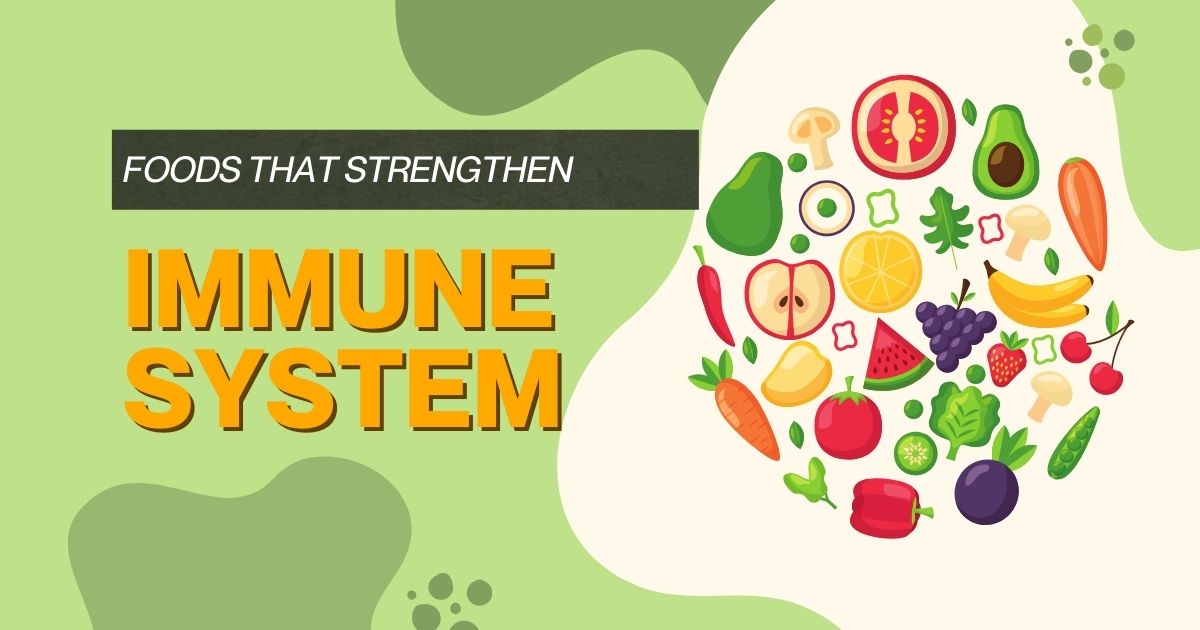A strong immune system is your body’s best defense against infections, viruses, and diseases. While lifestyle habits like adequate sleep, regular exercise, and stress management play a crucial role, nutrition is equally important. Certain foods contain vitamins, minerals, antioxidants, and other bioactive compounds that help strengthen immunity and protect against illness.
This guide highlights the top 10 foods that naturally boost your immune system and provides tips on incorporating them into your daily diet.
Why Nutrition Matters for Immunity
The immune system relies on nutrients to function effectively. Deficiencies in vitamins and minerals can weaken immunity and make the body more susceptible to infections. Nutrient-rich foods help:
-
Enhance white blood cell production for fighting infections
-
Reduce inflammation and oxidative stress
-
Support gut health, which is closely linked to immune function
-
Improve overall energy and resilience
1. Citrus Fruits
Examples:
-
Oranges
-
Lemons
-
Grapefruits
-
Limes
Benefits:
Citrus fruits are rich in vitamin C, a powerful antioxidant that boosts white blood cell production and enhances immune response. Regular consumption can reduce the duration and severity of colds and infections.
Tip: Start your day with a glass of fresh orange juice or add lemon to water for a simple boost.
2. Garlic
Benefits:
Garlic contains compounds like allicin, which have antibacterial, antiviral, and immune-stimulating properties. It helps activate immune cells and fight off pathogens.
Tip: Include raw or lightly cooked garlic in soups, salads, and stir-fries for maximum benefits.
3. Ginger
Benefits:
Ginger has anti-inflammatory and antioxidant properties that support immunity. It can also help reduce symptoms of infections and support digestive health.
Tip: Brew ginger tea, add fresh ginger to smoothies, or include it in cooking for a natural immune boost.
4. Spinach and Leafy Greens
Examples:
-
Spinach
-
Kale
-
Swiss chard
-
Collard greens
Benefits:
Rich in vitamins A, C, and K, as well as folate and antioxidants, leafy greens enhance immune function and protect cells from damage.
Tip: Add leafy greens to salads, soups, or smoothies to maximize nutrient intake.
5. Yogurt and Fermented Foods
Examples:
-
Yogurt with live cultures
-
Kefir
-
Kimchi
-
Sauerkraut
Benefits:
These foods contain probiotics, which support gut health. A healthy gut microbiome is closely linked to stronger immunity and better digestion.
Tip: Choose unsweetened, live-culture yogurts or incorporate fermented vegetables into meals.
6. Almonds and Other Nuts
Benefits:
Nuts, especially almonds, are rich in vitamin E, a fat-soluble antioxidant that helps combat oxidative stress and strengthens immune response. They also provide healthy fats and protein.
Tip: Snack on a handful of almonds daily or sprinkle chopped nuts over salads or yogurt.
7. Turmeric
Benefits:
Curcumin, the active compound in turmeric, has powerful anti-inflammatory and antioxidant effects that support immune health. It may help prevent infections and enhance overall wellness.
Tip: Add turmeric to soups, stews, or golden milk for a daily dose. Pair it with black pepper to improve absorption.
8. Green Tea
Benefits:
Green tea contains polyphenols and flavonoids that have antioxidant properties and enhance immune function. Epigallocatechin gallate (EGCG) in green tea is especially effective in supporting the immune system.
Tip: Replace one cup of coffee with green tea to boost antioxidants without overcaffeinating.
9. Berries
Examples:
-
Blueberries
-
Strawberries
-
Raspberries
-
Blackberries
Benefits:
Berries are rich in vitamin C, antioxidants, and fiber, which reduce inflammation, fight free radicals, and enhance immune function.
Tip: Add berries to breakfast cereals, smoothies, or salads for a tasty immune boost.
10. Shellfish and Lean Proteins
Examples:
-
Oysters
-
Crab
-
Lobster
-
Chicken
-
Turkey
Benefits:
Zinc and selenium, found in shellfish and lean proteins, are essential for immune cell development and function. Adequate protein intake also supports the production of antibodies and immune system repair.
Tip: Include lean protein or seafood in meals 3–4 times a week to maintain immunity.
Tips for Maximizing Immune Health
-
Eat a Balanced Diet: Combine fruits, vegetables, lean proteins, and healthy fats.
-
Stay Hydrated: Water supports cellular function and nutrient transport.
-
Limit Processed Foods: Reduce sugar, refined carbs, and trans fats that weaken immunity.
-
Exercise Regularly: Physical activity enhances circulation and immune response.
-
Get Adequate Sleep: Poor sleep impairs immune function and increases susceptibility to illness.
Conclusion
Incorporating these top 10 immune-boosting foods into your daily diet can significantly enhance your body’s defenses, reduce inflammation, and improve overall health. Coupled with proper sleep, regular exercise, and stress management, these foods provide a natural and effective strategy for maintaining a strong immune system. Small, consistent dietary choices can lead to long-term resilience against infections and support overall well-being.
Also Read : Plant-Based Diet: Beginner’s Guide and Recipes
FAQs
Q1. Can food alone prevent illness?
While nutrition significantly supports immunity, it should be combined with lifestyle habits like exercise, sleep, and hygiene for optimal protection.
Q2. How quickly can I see benefits from immune-boosting foods?
Regular consumption over weeks to months supports overall immunity, though immediate energy and well-being improvements may be noticed sooner.
Q3. Are supplements necessary for immunity?
Supplements can help if dietary intake is insufficient, but whole foods are the preferred source of essential vitamins and minerals.
Q4. Can spicy foods like ginger and garlic replace medications?
No, while beneficial, these foods complement medical care but do not replace treatments for infections or chronic conditions.
Q5. Is variety important in an immune-boosting diet?
Yes, consuming a variety of foods ensures you get a broad spectrum of vitamins, minerals, and antioxidants essential for immune function.



